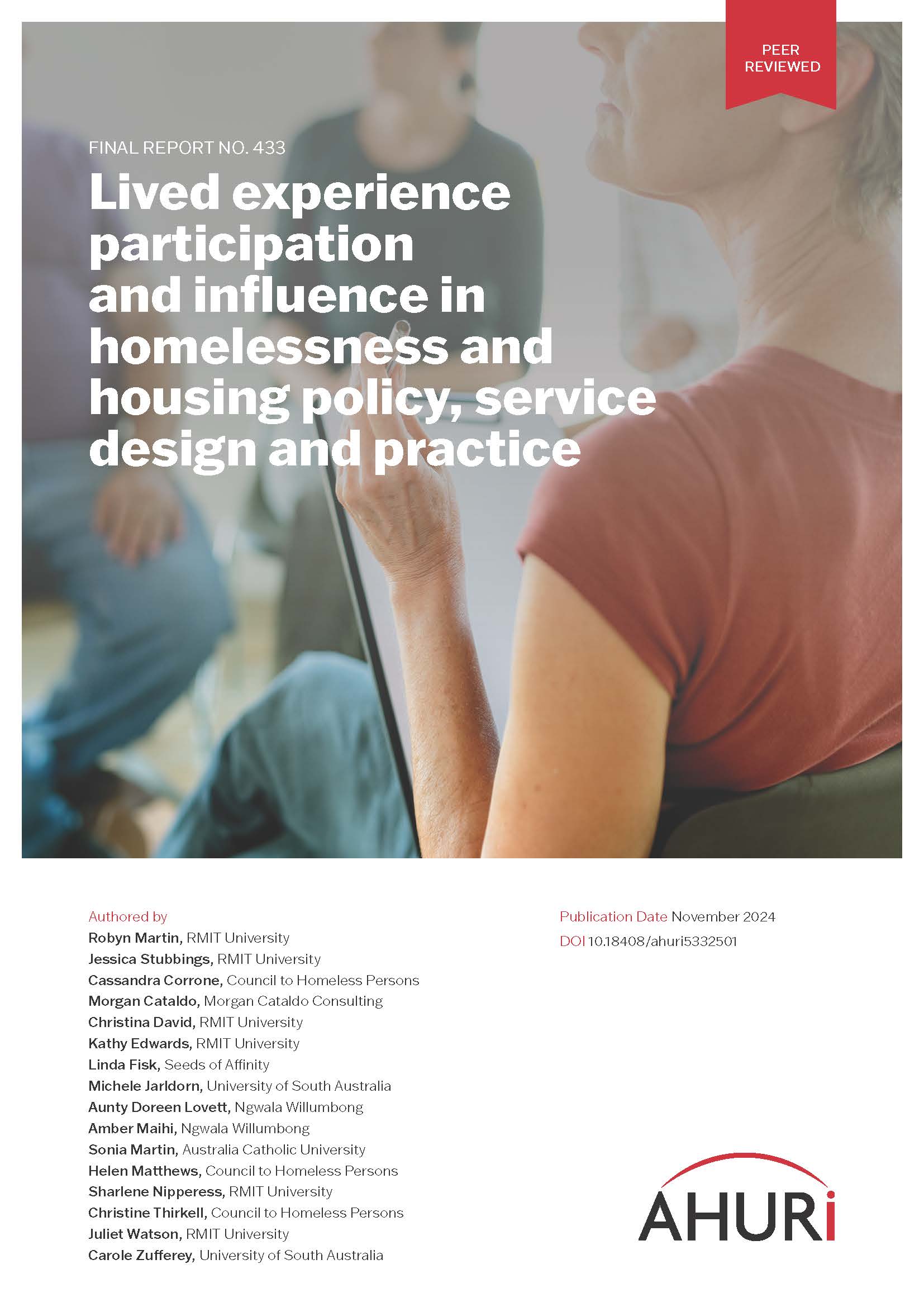
Better practices required for people with lived experience of homelessness to be heard
05 Dec 2024
Over the last two decades, governments and service providers have come to expect that people with lived experience of homelessness should participate in and influence homelessness policy design and practice.
However, according to new AHURI research, people with lived experience often feel their participation and influence is far from meaningful. They spoke of being unheard and of their concerns not being taken seriously in a new AHURI report, ‘Lived experience participation and influence in homelessness and housing policy, service design and practice’.
People with lived experience know they have a lot to contribute
‘The best practical solutions involve partnerships between people with lived experience of homelessness, service providers, practitioners and policy makers. As one of the research participants put it so well, “We can see the gaps, because we’ve lived through the gaps”,’ says Professor Martin.
People with lived experience say organisations rarely listen well
‘People with lived experience often felt unseen, unheard and not taken seriously. Concerningly, people also experienced structural violence, that is having unsafe, transactional and confronting encounters with services, systems and workers,’ said lead researcher Professor Robyn Martin from RMIT University.
Organisations can implement strategies to improve meaningful participation
Roundtable discussions in South Australia and Victoria involved people with lived experience, policy makers, practitioners and academics.
The discussions highlighted that in a collaborative partnership everyone is able to contribute to effective solutions. This can lead to meaningful and practical ideas, strategies and solutions that accurately reflect the needs of those experiencing homelessness.
‘Many different groups, such as federal and state governments, research-funding bodies and higher education providers, need to show leadership in embedding the participation of lived experience,’ says Professor Martin.
The research identified a number of principles that organisations can implement so that people with lived experience can participate meaningfully and enact influence, including:
- recognise that people with lived experience have the capacity and the right to act and decide independently
- lived experience is recognised as a discipline, with equally valid claims to qualification, expertise and specialist knowledge
- peer support between people with lived experience is valued and supported
- people with lived experience identify and lead research agendas
- embed lived experience perspectives in housing and homelessness policy, service design and practice
- ensure collaboration and shared power between those with and without lived experience.
The research was undertaken for AHURI by researchers from RMIT University, Council to Homeless Persons, Morgan Cataldo Consulting, Seeds of Affinity, University of South Australia, Ngwala Willumbong and Australia Catholic University.

